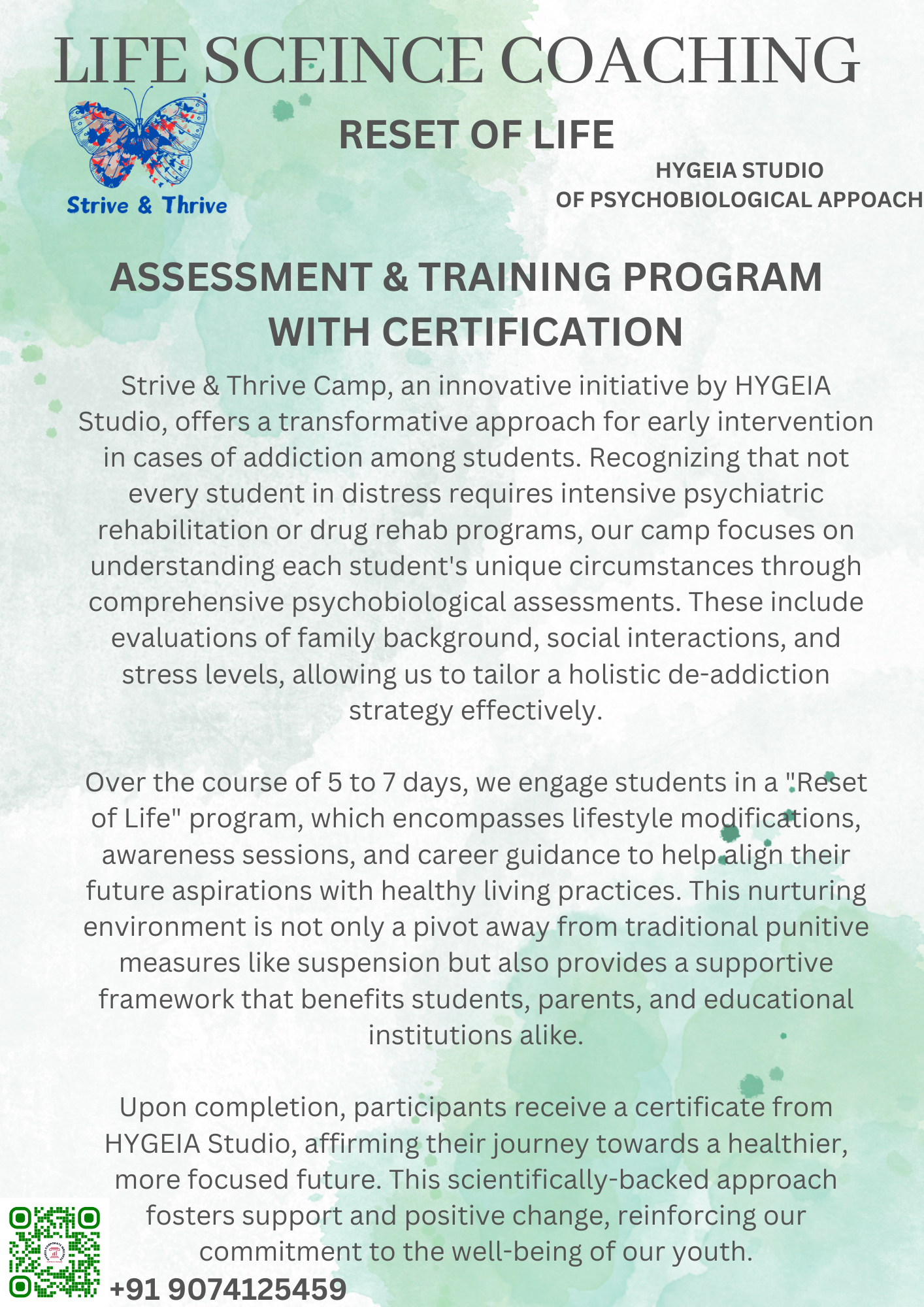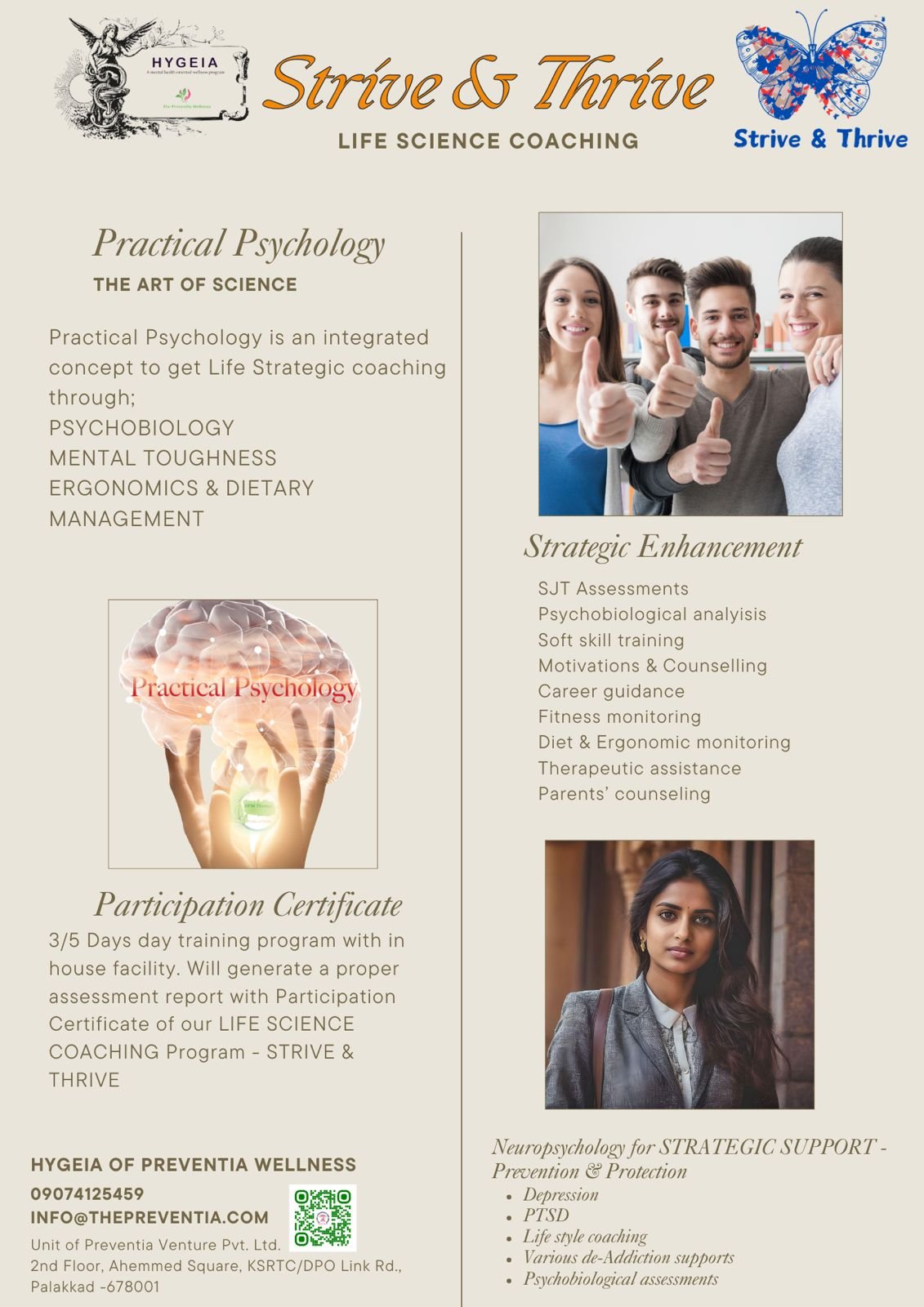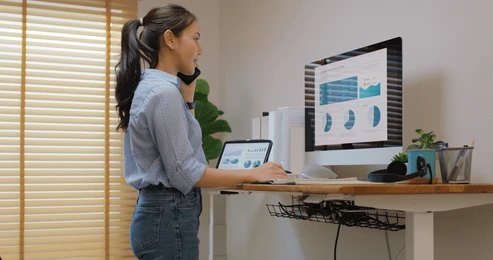Corporate and Industrial Program
Empowering Productivity Through Employee Wellness
Welcome to Thrive 360, a transformative corporate wellness initiative blending the art and science of practical psychology and psychobiology. With a strong belief that a thriving workforce is the backbone of organizational success, our program is designed to foster employee well-being, enhance workplace harmony, and boost productivity.
Why Thrive 360?
In the fast-paced corporate world, employee wellness is not just an option—it’s a necessity. Thrive 360 integrates evidence-based scientific principles with holistic wellness strategies to address physical, mental, and emotional health challenges, ensuring a motivated and high-performing workforce.
Our 360-degree approach delivers comprehensive solutions by focusing on:
• Mental Resilience
• Ergonomics and Workspace Optimization
• Dietary Management
• Soft Skills Development
KeyFeatures :
• Conduct Internal HR Audits to evaluate workplace ergonomics and identify psychological challenges.
• Offer Personalized Counseling to address individual stressors and health concerns.
• Develop Diagnostic Charts mapping employee well-being and workplace improvement areas.
• Create Bespoke Interventions based on assessment findings.
• Design Personalized Strategies for employees to optimize performance.
• Collaborate with HR teams for seamless Program Implementation across departments.
• Workshops and sessions led by psychologists, fitness trainers, dieticians, and motivational
speakers.
• Training focuses on:
o Stress Management
o Teamwork Enhancement
o Ergonomic Adjustments
o Mental Toughness
• Implement ongoing Evaluation and Feedback Loops to refine strategies.
• Provide Regular Progress Reports to track and measure improvements in productivity and wellness.
STRIVE 360 Framework
Our approach is driven by the STRIVE 360 Theory, which balances employee wellness and organizational productivity through:
1. Assessment: Identifying workplace challenges and individual stressors.
2. Problem Identification: Analyzing weak points and opportunities for support.
3. Intervention Strategies: Crafting team and individual solutions for a harmonious work environment.
4. Equilibrium Model: Visualizing the positive effects of workplace adjustments.
5. Continuous Improvement: Adopting iterative feedback and adapting to evolving needs.
Benefits of the Program
• Enhanced Morale: Improved employee satisfaction and retention.
• Boosted Productivity: Healthier employees deliver better results.
• Reduced Absenteeism: Addressing stress and health concerns decreases time away from work.
• Stronger Workplace Culture: Increased collaboration and team cohesion.
• Measurable ROI: Improved business outcomes through sustained employee efficiency.




